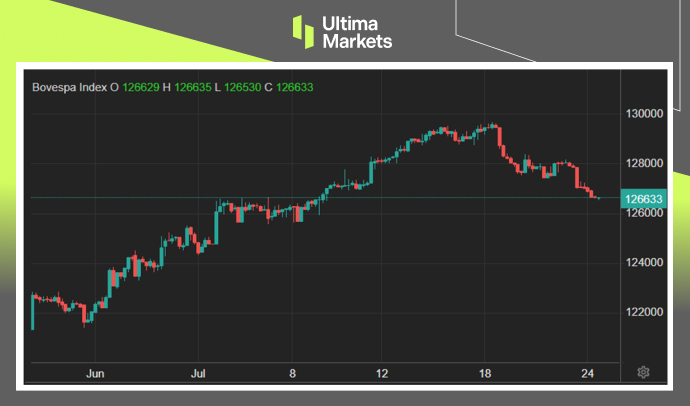Important Information
This website is managed by Ultima Markets’ international entities, and it’s important to emphasise that they are not subject to regulation by the FCA in the UK. Therefore, you must understand that you will not have the FCA’s protection when investing through this website – for example:
- You will not be guaranteed Negative Balance Protection
- You will not be protected by FCA’s leverage restrictions
- You will not have the right to settle disputes via the Financial Ombudsman Service (FOS)
- You will not be protected by Financial Services Compensation Scheme (FSCS)
- Any monies deposited will not be afforded the protection required under the FCA Client Assets Sourcebook. The level of protection for your funds will be determined by the regulations of the relevant local regulator.
Note: UK clients are kindly invited to visit https://www.ultima-markets.co.uk/. Ultima Markets UK expects to begin onboarding UK clients in accordance with FCA regulatory requirements in 2026.
If you would like to proceed and visit this website, you acknowledge and confirm the following:
- 1.The website is owned by Ultima Markets’ international entities and not by Ultima Markets UK Ltd, which is regulated by the FCA.
- 2.Ultima Markets Limited, or any of the Ultima Markets international entities, are neither based in the UK nor licensed by the FCA.
- 3.You are accessing the website at your own initiative and have not been solicited by Ultima Markets Limited in any way.
- 4.Investing through this website does not grant you the protections provided by the FCA.
- 5.Should you choose to invest through this website or with any of the international Ultima Markets entities, you will be subject to the rules and regulations of the relevant international regulatory authorities, not the FCA.
Ultima Markets wants to make it clear that we are duly licensed and authorised to offer the services and financial derivative products listed on our website. Individuals accessing this website and registering a trading account do so entirely of their own volition and without prior solicitation.
By confirming your decision to proceed with entering the website, you hereby affirm that this decision was solely initiated by you, and no solicitation has been made by any Ultima Markets entity.
I confirm my intention to proceed and enter this website Please direct me to the website operated by Ultima Markets , regulated by the FCA in the United Kingdom
Ultima Markets App
Trade Anytime, Anywhere

Brazilian Stock Market Slips: Mega-Cap Drops and Fiscal Worries Weigh Heavy
On Tuesday, Brazil’s Ibovespa stock index experienced a downturn, dropping 0.99% and falling below the 127,200 mark. The decline was primarily attributed to two key factors: sharp falls in mega-cap stocks and growing fiscal concerns that weighed heavily on investor sentiment.
Several major companies saw significant losses in their stock prices. Vale, the iron ore mining giant, fell over 1.34% due to declining ferrous metal prices, while Companhia Siderúrgica Nacional experienced an even steeper drop of 5.50%. Petrobras, the state-controlled oil company, wasn’t spared either, declining more than 1.29% as global oil prices hit a six-week low. Other notable losses included Atacadao, which fell over 3%, and both Rede D’Or Sao Luiz and Banco Santander, each seeing declines exceeding 2%.
Adding to the market’s worries were mounting fiscal concerns. Finance Minister Fernando Haddad recently announced a budget freeze of R$15 billion, a move that was initially viewed as a positive step towards fiscal responsibility. However, market participants ultimately deemed this measure insufficient to address broader fiscal challenges. The government’s revenue projections are widely considered overly optimistic, raising doubts about the feasibility of meeting current fiscal targets.
This discrepancy between the government’s projections and market expectations has led to speculation that discussions about adjusting the primary result target may need to resume soon. As a result, fiscal spending concerns have regained prominence in market discussions, putting additional pressure on stock prices and overall market performance. The combination of these fiscal uncertainties and the poor performance of major stocks contributed to the pessimistic mood in the Brazilian market on Tuesday.

(Bovespa Index Monthly Chart)
Disclaimer
Comments, news, research, analysis, price, and all information contained in the article only serve as general information for readers and do not suggest any advice. Ultima Markets has taken reasonable measures to provide up-to-date information, but cannot guarantee accuracy, and may modify without notice. Ultima Markets will not be responsible for any loss incurred due to the application of the information provided.
Why Trade Metals & Commodities with Ultima Markets?
Ultima Markets provides the foremost competitive cost and exchange environment for prevalent commodities worldwide.
Start TradingMonitoring the market on the go
Markets are susceptible to changes in supply and demand
Attractive to investors only interested in price speculation
Deep and diverse liquidity with no hidden fees
No dealing desk and no requotes
Fast execution via Equinix NY4 server









